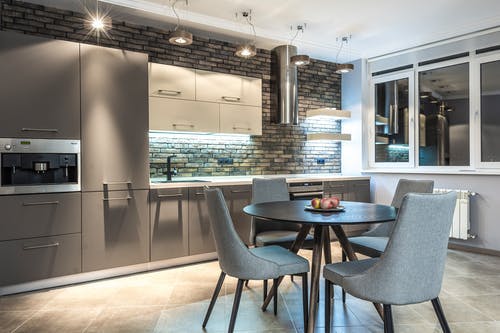If you’ve ever thought about investing in real estate, there are a few things that you should know before you go about investing. For one, there are many other types of real estate investments than just residential real estate. There’s also commercial real estate, mixed-use properties, special use properties, agricultural (raw land) real estate, and industrial real estate. Each of these types of properties can be very successful when it comes to investing, but they all also come with both pros and cons.
Before you decide on which type of rental property you’d like to invest in, here are some of the risks and rewards to consider associated with each.
Residential Properties
Residential real estate refers to properties that house one or more families, but usually no more than five families. This includes single-family homes (including vacation rental properties), duplexes (two-family homes), and quadruplexes (four-family homes).
Pros of Investing in Residential Real Estate
Investing in residential properties is a great way for you to earn a secondary stream of income/passive income. They tend to be very profitable and are much more affordable than people think, especially compared to other types of real estate, especially with the current real estate boom. You’ll also qualify for certain tax benefits as the owner of a rental property. Alternatively, you can go the route of reselling properties rather than holding onto them long term as rental assets. Buying run down properties, giving them a face lift before selling them on for a profit is a very involved line of real estate investment where you can essential oversee the project from start to end. It can be very satisfying to see a property transform and generate more value. It is also now more accessible than ever due to lenders offering something called a fix and flip loan, which as the name suggests; is a capital loan to buy a run down property, invest in renovations before selling on for profit. These loans are shorter term seeing as you are aiming to turn over the property to sell it, with the profits you pay off the loan then pocket the rest.
Cons of Investing in Residential Real Estate
The downside to being the owner of a residential property is that though you’re earning passive income, you still have a lot of responsibilities as the landlord. First, you must find trustworthy tenants to rent your property, and the more vacancies you have, the more tenants you must search for and also screen. You also have to assume all responsibilities of a landlord, such as seeing that appliances and amenities are repaired if they break down.
Fortunately, you do have the option of hiring a property manager to help you out with or to take over all of these tasks. Just keep in mind that hiring a property manager is another expense on your part but can be worth it in the long run.
Commercial Properties
Commercial real estate refers to buildings that are used to conduct business. These include your standard office buildings, shopping centers and malls, restaurants, and hotels. Industrial buildings, such as factories, power plants, and warehouses are also sometimes considered commercial properties.
Pros of Investing in Commercial Real Estate
Commercial real estate usually yields higher returns on investment than residential properties, especially office buildings. This is because you have more tenants paying you more rent each month, and these tenants are business professionals who care about paying their rent on time. Though it’s possible to have a higher vacancy rate than with a residential property, it won’t be as hard to find and screen potential tenants. In some cases, maintenance of the building is split between you and your tenants, so a lot of the work can come off your shoulders.
Cons of Investing in Commercial Real Estate
On the other hand, commercial real estate is usually much more expensive than residential real estate. Luckily, there are companies that specialize in property loans of all sorts, including commercial properties. A bigger investment usually implies a bigger risk, but remember that there is always some level of risk with any kind of investment.
Mixed-use and Other Properties
Mixed-use properties are properties that serve more than one purpose. Most mixed-use properties are a combination of residential and commercial, such as a restaurant or other shop with two or more living quarters above it. Apartment complexes and pre-construction condominiums are also sometimes considered to be mixed-use properties. Because mixed-use properties are a combination of residential and commercial real estate, they carry many of the same pros and cons. The biggest advantage of mixed-use properties is that they add diversity to your real estate investment portfolio, while a major downfall is that there may be tension between your residential tenants and your commercial tenant(s).
Special use properties (churches, schools, libraries, museums, and government buildings) are publicly held properties, so they’re not really considered rental properties. Land, on the other hand, can be purchased and held as it appreciates in value, or you can choose to build residential/commercial/mixed-use properties on that land to increase your earnings from it. Other forms of raw land (farms, ranches, orchards, etc.) can also be properly utilized in a way to bring in more income.
Despite all of the cons, all of these properties have the potential to be successful. The key is to ensure that the property you’re investing in is in a prime location, meaning that it will attract tenants. Examples of a prime location are a low-crime neighborhood and access to amenities such as parks, schools, shopping centers, movie theaters, and other forms of entertainment.


Comments are closed.